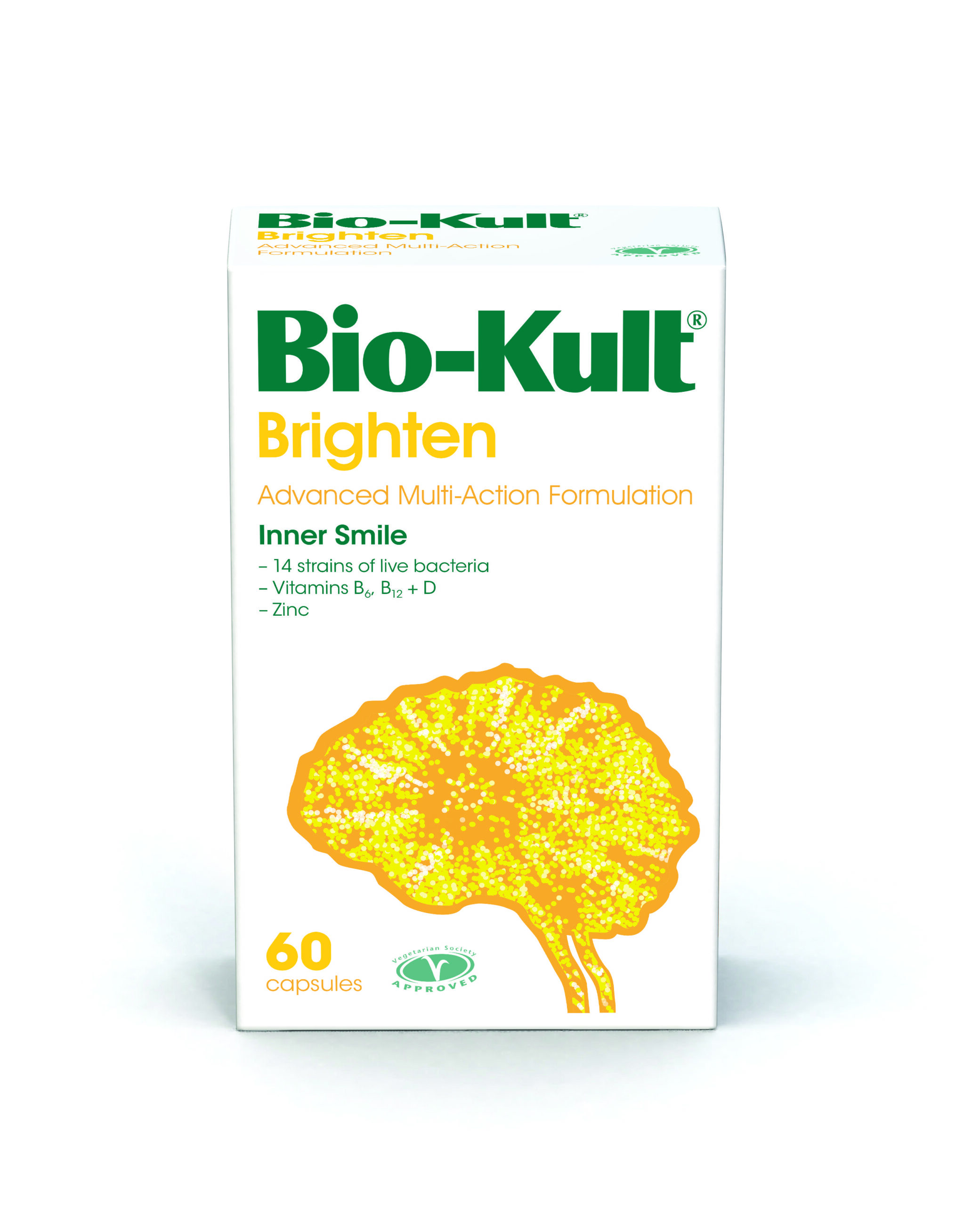
Ways to Improve Low Mood: By Hannah Braye, Nutritional Therapist at Bio-Kult (www.bio-kult.com)
Low mood and depression is sometimes described as having a portable black cloud following you around. Many sufferers report feeling sad, low, tearful or hopeless. Other common symptoms include lack of energy, difficulties concentrating and feeling unsociable. 1 in 4 people will experience a mental health problem of some kind each year in England, with 1 in 6 people reporting to experience a common mental health problem (like anxiety or depression) in any given week. Below are some suggestions for ways to lift your mood:
• Eat Well – What we eat can have a big impact on our mood. Whilst when we are feeling low many people crave comforting carbohydrates, ensuring you are getting sufficient protein is much more beneficial. Amino acids (which make up proteins) are the building blocks for feel-good neurotransmitters in the brain. Whilst carbohydrates make us feel good initially, sugary foods and refined carbohydrates can become addictive and be precipitated by a crash in blood sugars and a corresponding crash in energy and mood. Therefore, opting for lower glycaemic index (GI) complex carbohydrates such as oats, wholegrain riceand quinoa, rather than sugary/refined carbs such as white bread, pasta, cakes and sweets is recommended. A Mediterranean style diet, rich in colourful fruit, vegetablesand anti-inflammatory omega 3 from oily fish appears to be particularly beneficial for those suffering with low mood.
• Look after your gut bacteria – Our gut bacteria (the microbiome) helps to regulate the production of numerous neurotransmitters and the signals that are sent from the gut to the brain via the vagus nerve. The gut is increasingly being seen as the second brain, so it’s perhaps unsurprising that studies are showing promising results in mood disorders from interventions designed to improve gut microbial balance. Live bacteria strains within Bio-KultBrighten (£19.94, www.bio-kult.com), was recently used in a study at The University of Oxford on low mood. The paper is yet to be published, however the trial was covered in a recent BBC documentary – The Truth About Improving Your Mental Health. This was a double-blind placebo controlled trial in 70 people who were experiencing low mood, half were given placebo and the other half were given Bio-Kult. They were taking 2 capsules twice a day for a month. The participants reported their mood via a Patient Health Questionnaire for Depression (PHQ-9), additionally cortisol levels were tested through salivary analysis. The result from the documentary showed a 20% improvement in mood for those in the placebo group versus a 50% improvement in mood in those taking Bio-Kult. The supplement group also reported a 50% improvement in their concentration. While there were no effects on cortisol levels in the placebo group, the Bio-Kult group saw a decrease in cortisol levels in their saliva, which suggests lower stress levels. Bio-Kult Brighten also contains vitamins B6, B12, and D3 along with zinc and magnesium, suggested to support psychological health, immune function and reduce tiredness and fatigue.
• Increase tryptophan rich foods – Tryptophan is the pre-cursor to serotonin (our happy hormone). As an essential amino acid, the body cannot create it and we must obtain it from the food we eat. However, only around 3% of dietary tryptophan is utilised for serotonin production (and this may be reduced even further in times of stress). Ensuring you have good sources of tryptophan in the diet, such as turkey, beef, bananas, beans, cottage cheese, nuts and seeds is therefore important. Interestingly, research also suggests that the composition of our gut bacteria can affect the metabolism of tryptophan, increasing the pool available for conversion to serotonin in the brain. Another reason to look after your gut health!
• Implement a routine and stick to it – A common observation in those who suffer with certain types of low mood, for example SAD, is disrupted circadian rhythms (which dictates our sleep and waking cycle). If you need an excessive amount of sleep just to function properly, yet still often feel tired, this could be an indication that your body clock is out of sync. Following a set routine, where you wake, eat, exercise and go to bed at the same times every day may help. As will limiting your exposure to artificial light and electronic devices.
• Listen to what your body needs – Sometimes it feels like there is a lot of pressure to put on a brave face and push on with our hectic daily lives regardless of how we are feeling. Whilst getting out of the house, exercising and seeing friends can have great therapeutic benefits, it may not be what you need all the time. It’s important to listen to what your body is telling you. If you need to curl up with a good book or film, have a long bath or take it easy at the weekend, allow yourself to do so without guilt.
• Don’t Suffer in Silence – Feeling low, anxious, stressed or depressed is much more common than you think(remember, 1 in 6 people experiencing a common mental health problem in any given week), and there is no need to go through it alone. If you’re feeling low, talk to a close friend or family member and explain how you’re feeling. Just having someone listen may help get you through a particularly difficult day. Many also find cognitive behavioural therapy (CBT) and other talking therapies beneficial, so speak to your GP if you would like additional support.



